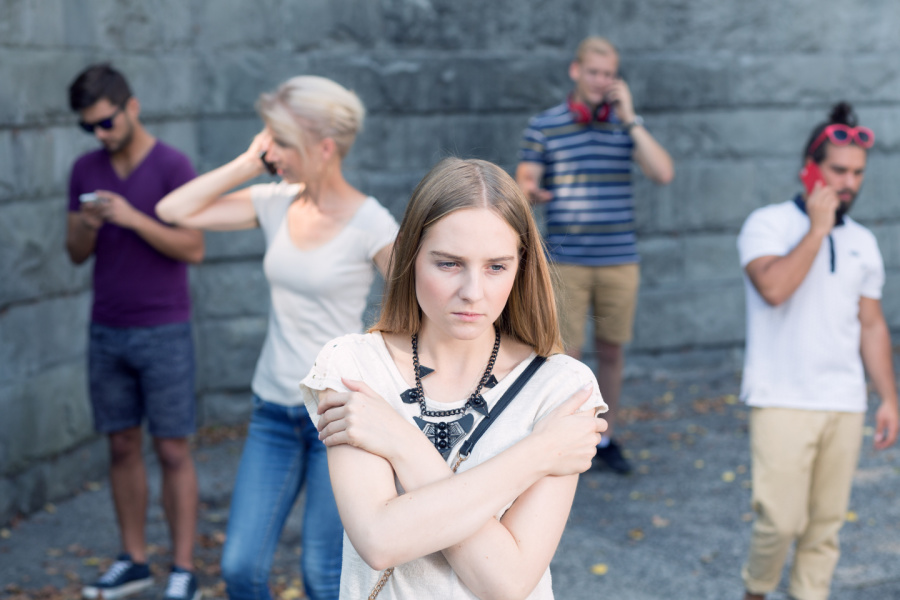ADHD and social anxiety frequently occur together, creating a cycle that can make everyday interactions feel daunting. Symptoms of ADHD—such as impulsivity, distractibility, or restlessness—may unintentionally add to social struggles, leaving you feeling out of sync in conversations or group settings.
These challenges can lead to worries about being judged, misunderstood, or making mistakes, which in turn intensifies social anxiety. Over time, this combination can encourage avoidance of social situations, further reducing confidence and connection.
The good news is that with the right tools and self-awareness, it’s possible to break this cycle. By learning strategies to manage both ADHD and social anxiety, you can gradually rebuild confidence, improve communication, and feel more at ease in social environments.
The Overlap Between ADHD and Social Anxiety
Social anxiety often stems from a fear of being judged, embarrassed, or rejected in social situations. When ADHD enters the picture, these fears can become even more overwhelming. Symptoms such as impulsivity, difficulty concentrating, or forgetfulness can make interactions feel unpredictable, leaving you worried about saying the wrong thing, missing cues, or drifting off mid-conversation. These concerns can fuel embarrassment and frustration, which in turn heighten your social anxiety.
For instance, if you tend to interrupt or lose track of the discussion, you may become overly self-conscious about how others see you. Over time, these moments can build into a cycle of dread and avoidance, where fear of embarrassment keeps you from engaging socially. This avoidance not only intensifies anxiety but can also create feelings of isolation, making social situations seem even more intimidating.

The Impact of ADHD on Social Confidence
ADHD can have a significant effect on self-esteem, especially in social and professional settings. If you’ve often been criticised for being too talkative, distracted, or impulsive, it may feel as though you’re always getting it “wrong.” Over time, repeated negative feedback can chip away at your social confidence, leaving you uncertain about how others perceive you and anxious about engaging in conversations.
One challenge many people with ADHD face is Rejection Sensitivity Dysphoria (RSD) — an intense emotional response to perceived criticism or rejection. Even small moments, such as being left out of a discussion or receiving neutral feedback, can feel deeply painful and trigger rumination. This heightened sensitivity can make social situations feel risky, leading to avoidance and reinforcing feelings of anxiety.
When the everyday social difficulties of ADHD are combined with the fear of rejection, confidence can quickly erode. The anticipation of negative judgment may cause you to withdraw, creating a cycle where missed opportunities for positive interactions deepen both anxiety and self-doubt.
Coping Strategies for ADHD and Social Anxiety
Effectively managing ADHD and social anxiety often requires a combined approach that addresses both the core ADHD symptoms and the fears that fuel social anxiety.
1. Build Self-Awareness
A key first step is recognising how ADHD influences your social interactions. If you sometimes interrupt, lose track of conversations, or struggle to stay focused, it’s important to understand that these behaviours are symptoms of ADHD — not personal failings. Reframing them this way can ease feelings of shame and help you approach social situations with greater self-compassion.
2. Explore Cognitive-Behavioural Therapy (CBT)
CBT is one of the most effective treatments for social anxiety and can be particularly useful for people with ADHD. It helps you identify unhelpful thought patterns — such as assuming others are judging you harshly — and replace them with more balanced perspectives. CBT also equips you with practical tools like mindfulness, grounding techniques, and gradual exposure to social settings, allowing you to face fears in a safe, supported way.
3. Strengthen Social Skills
Developing tailored strategies can improve confidence in conversations. Techniques like active listening, using prompts or reminders to stay on track, and practicing a short pause before speaking can reduce impulsivity and help you feel more in control. Over time, these small adjustments can make social interactions smoother and less stressful.
4. Lean on Support Networks
Whether from friends, family, or support groups, having people who understand your challenges can make a big difference. Talking openly about your experiences helps reduce isolation and provides encouragement when social anxiety feels overwhelming. Peer groups focused on ADHD or social anxiety can also connect you with others who truly understand what you’re going through.
By combining self-awareness, therapy, skill-building, and social support, you can gradually break free from the cycle of anxiety and avoidance. With time, confidence grows — making social situations feel less intimidating and more rewarding.
Start Understanding Your ADHD
If you recognise these challenges in your own life and wonder whether ADHD might be contributing to your social anxiety, an Adult ADHD Assessment could provide valuable clarity. This assessment is a structured way to explore whether ADHD may be influencing your social experiences, and the results can help guide your GP or specialist in recommending appropriate support or treatment.
Understanding the connection between ADHD and social anxiety can open the door to personalised strategies and interventions, helping you build confidence and navigate social situations with greater ease. Taking this step can be the first move toward gaining the support you need to thrive both socially and emotionally.





.svg)

.svg)


